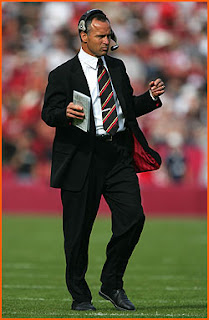I caught the final few minutes of the Republican presidential debate on CNN after getting home from work tonight. It occurred to me that television has been using the same debate format ever since Kennedy debated Nixon back in 1960: questions from a panel with one-to-two minute answers, and in the case of a small number of candidates, a rebuttal. The original incarnation of the American electoral debate was the Lincoln-Douglas debates in the 1858 Illinois Senate race a century and a half ago. Lincoln and Douglas would argue the morality of slavery for hours at a time in each of Illinois' congressional districts.
Obviously letting ten candidates go at it without time limits or moderators directing the debate isn't feasible today. But one minute responses to questions about complex issues like terrorism, immigration, or the economy? A candidate can't possibly express his own ideas or critique those of his adversary in such short time. This isn't to say that candidates won't try--but in doing so, they often have to oversimplify their ideas and, as is increasingly the case, dumb down the ideas themselves.
So here's what I'd suggest. First of all, completely ditch these ten candidate early debates. They're completely unnecessary. Don't even start thinking about it for another six months or so when half of these candidates are gone.
Second, at that point, cut the number of questions and increase the amount of time candidates are given to discuss their ideas. Give them eight minutes apiece per question. And if there are only two or three candidates in the mix, throw in some three or four minute rebuttals. That way candidates won't be saved by the bell. Make Mitt Romney explain what
he would do about immigration instead of simply taking a minute to declare his opposition to "amnesty." Any former debaters reading this might have an idea where eight minutes and three minutes come from. But think about it--would debate have been a worthwhile activity if it was a string of pithy one minute back-and-forth retorts? Of course not. People want substance from their candidates and the only way they're going to get it is if candidates have adequate time. We don't need twelve questions on immigration or terrorism; you get the same canned response each time anyway. I'd rather have one in-depth response than seven or eight abbreviated ones.
Third, let candidates pose questions to one another. Give them some control over the direction of the debate rather than leaving it in the hands of Brit Hume and Wolf Blitzer. It is, after all, their campaign. They should have at least some control over the message.
Labels: Election 2008, Forensics










